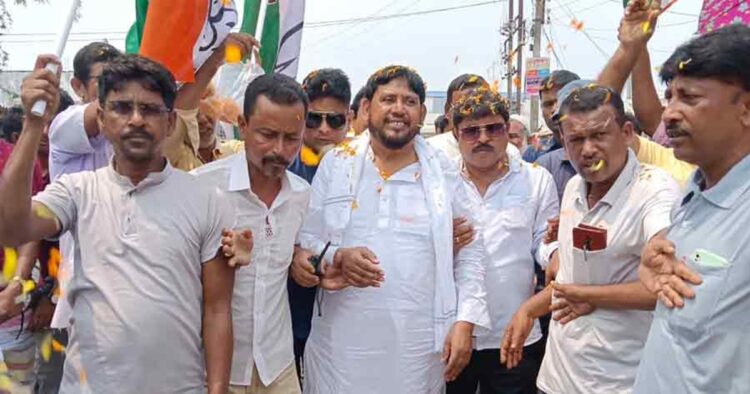Haji Nurul Islam, the Trinamool Congress (TMC) candidate for the Basirhat Lok Sabha constituency, made a vow to create a “new Sandeshkhali” during his recent visit to the area on Sunday, March 31st. Sandeshkhali has been embroiled in controversy, with protests against alleged land grabbing and sexual assault by TMC leader Shahjahan Sheikh and his associates.
Islam addressed the concerns of the residents during a street-corner meeting, reassuring them of development initiatives while dismissing allegations of sexual assault as “baseless.” He also accused BJP and CPM leaders of trying to incite violence but emphasized the TMC’s commitment to the community’s welfare.
The rally, starting from the Abhijan Sangha ground in Sandeshkhali block-II, passed through areas previously affected by protests and violence, including Trimohini Bazar, Jeliakhali, Bermajur, Kaharpara, and Patrapara.
Political Contest in Basirhat
In the upcoming elections, the BJP has fielded Rekha Patra, a Sandeshkhali resident who initially raised concerns about the alleged assaults. The accused TMC leaders, including MLA Sheikh Shahjahan, are currently in custody. Meanwhile, TMC has nominated Haji Nurul Islam, a former MP known for his influence in the minority community.
Islam’s candidacy, however, has sparked controversy due to his involvement in the 2010 Deganga riots. He was accused of leading a mob that targeted Hindu-owned properties and desecrated temples. The riots occurred amidst a demographic shift in the predominantly Hindu region, worsening under Islam’s leadership.
Past Controversy Resurfaces
The Deganga riots, which erupted in 2010, saw a Muslim mob, allegedly led by Haji Nurul Islam, engaging in violence, including house and shop destruction, vehicle arson, and temple desecration. The incident underscored tensions in the region and raised questions about communal harmony.
Despite the allegations, Islam remains a prominent figure in TMC, contesting for Basirhat amidst ongoing scrutiny of his past actions. The upcoming elections will determine the political landscape of the region, with residents grappling with both developmental promises and lingering concerns over past incidents.
















Comments